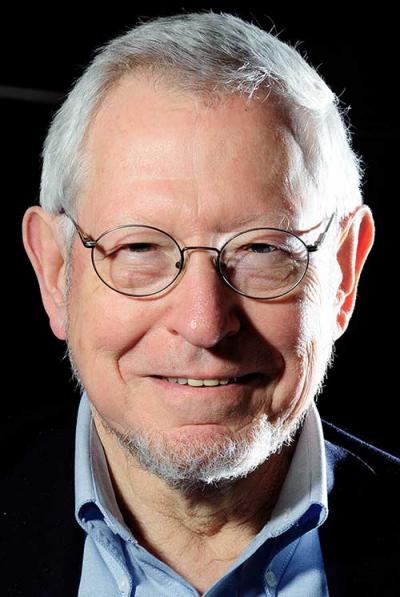

 Beta testers in the US and Canada paid $500 for a terminal and are paying $99 per month for the service. The beta tests began in high-income countries, but SpaceX is beginning to roll Starlink out and will include low-income nations, for example, India. Last September, SpaceX responded to a request for consultation on a roadmap to promote broadband connectivity and enhanced broadband speed from TRAI, the Telecommunications Regulatory Authority of India.
Beta testers in the US and Canada paid $500 for a terminal and are paying $99 per month for the service. The beta tests began in high-income countries, but SpaceX is beginning to roll Starlink out and will include low-income nations, for example, India. Last September, SpaceX responded to a request for consultation on a roadmap to promote broadband connectivity and enhanced broadband speed from TRAI, the Telecommunications Regulatory Authority of India.
 Nestled in the northeastern part of the United States is the small state of Vermont, the 14th State to join the United States in 1789. Its name comes from the French, in which 'vert montagne' means 'green mountain.' and it is known as the Green Mountain state. With only about 625,000 inhabitants, it is the 45th state out of 50 in size, and 49th of 50 in number of people, even less populated than Alaska.
Nestled in the northeastern part of the United States is the small state of Vermont, the 14th State to join the United States in 1789. Its name comes from the French, in which 'vert montagne' means 'green mountain.' and it is known as the Green Mountain state. With only about 625,000 inhabitants, it is the 45th state out of 50 in size, and 49th of 50 in number of people, even less populated than Alaska.
 As much as I've written about broadband and broadband technology, it struck me that I have never written a concise response to the question, "Why Fiber?". Somebody asked me the question recently, and I immediately knew I had never answered the question. If you're going to build broadband and have a choice of technologies, why is fiber the best choice?
As much as I've written about broadband and broadband technology, it struck me that I have never written a concise response to the question, "Why Fiber?". Somebody asked me the question recently, and I immediately knew I had never answered the question. If you're going to build broadband and have a choice of technologies, why is fiber the best choice?
 If you have last-generation satellite internet access, broadband from a wireless ISP (WISP), or even satellite television from DISH or DIRECTV, an installer came and carefully aimed a dish antenna for you. Starlink, a broadband access service from Elon Musk's SpaceX company, reimagines the install process and, in most cases, eliminates the need for an installer. The Starlink dish can sit on the ground or the peak of your roof; more importantly, it aims itself, as you see in the accompanying video.
If you have last-generation satellite internet access, broadband from a wireless ISP (WISP), or even satellite television from DISH or DIRECTV, an installer came and carefully aimed a dish antenna for you. Starlink, a broadband access service from Elon Musk's SpaceX company, reimagines the install process and, in most cases, eliminates the need for an installer. The Starlink dish can sit on the ground or the peak of your roof; more importantly, it aims itself, as you see in the accompanying video.
 Last year, around the same time, the release on the same day of two flagship reports on 'the Internet' had prompted me to write an article on CircleID entitled 'Connecting the Next 46 Percent: Time to Pick the Good From the Bad and the Ugly'. I was then prudently asking whether 'the more we connect the world, the less free it becomes?'. Who would have known that a pandemic would erupt a few months later, unveiling different perspectives in assessing that very same question?
Last year, around the same time, the release on the same day of two flagship reports on 'the Internet' had prompted me to write an article on CircleID entitled 'Connecting the Next 46 Percent: Time to Pick the Good From the Bad and the Ugly'. I was then prudently asking whether 'the more we connect the world, the less free it becomes?'. Who would have known that a pandemic would erupt a few months later, unveiling different perspectives in assessing that very same question?
 I have to wonder if this year is making the big ISPs rethink their business plans. For years, many big ISPs have foregone making long-term investments in broadband and instead chased the quick return. A good example is CenturyLink. Before the merger with Level 3, the company had started a program to replace the copper plant in urban markets with fiber aggressively. At the peak, the company built fiber to pass 700,000 homes a year.
I have to wonder if this year is making the big ISPs rethink their business plans. For years, many big ISPs have foregone making long-term investments in broadband and instead chased the quick return. A good example is CenturyLink. Before the merger with Level 3, the company had started a program to replace the copper plant in urban markets with fiber aggressively. At the peak, the company built fiber to pass 700,000 homes a year.
 May become the access answer for many at the end of the road. The icicle dripping dish in the picture is the antenna for Starlink, a satellite-based broadband service from SpaceX -- one of Elon Musk's other companies. It came Saturday, just before the snow arrived here in Stowe, VT. It's heated, so I didn't have to shovel it out, and it's working despite its frozen beard. The pandemic has shown us that it is socially irresponsible to leave any family without broadband access.
May become the access answer for many at the end of the road. The icicle dripping dish in the picture is the antenna for Starlink, a satellite-based broadband service from SpaceX -- one of Elon Musk's other companies. It came Saturday, just before the snow arrived here in Stowe, VT. It's heated, so I didn't have to shovel it out, and it's working despite its frozen beard. The pandemic has shown us that it is socially irresponsible to leave any family without broadband access.
 When SpaceX first announced plans for Starlink, their low-Earth orbit Internet service constellation, they said each satellite would have five inter-satellite laser links (ISLLs) - two links to satellites in the same orbital plane, two to satellites in adjacent orbital planes, and one to a satellite in a crossing plane. They subsequently dropped the crossing link as too difficult and, when they finally began launching satellites, they had no laser links. Last year they tested ISLLs on two satellites.
When SpaceX first announced plans for Starlink, their low-Earth orbit Internet service constellation, they said each satellite would have five inter-satellite laser links (ISLLs) - two links to satellites in the same orbital plane, two to satellites in adjacent orbital planes, and one to a satellite in a crossing plane. They subsequently dropped the crossing link as too difficult and, when they finally began launching satellites, they had no laser links. Last year they tested ISLLs on two satellites.
 While 2021 will remain a year with lots of uncertainties, at the same time, we can say that the pandemic has not affected the information and communications technology (ICT) industry in any significant way. Yes, there has been a slowdown, for example, in the sale of smartphones. Shortages in both materials and expertise are slowing fiber deployment, and the recovery over 2021 will be slow and uncertain because of the many lockdowns and travel restrictions.
While 2021 will remain a year with lots of uncertainties, at the same time, we can say that the pandemic has not affected the information and communications technology (ICT) industry in any significant way. Yes, there has been a slowdown, for example, in the sale of smartphones. Shortages in both materials and expertise are slowing fiber deployment, and the recovery over 2021 will be slow and uncertain because of the many lockdowns and travel restrictions.
 Starlink is satellite internet access from SpaceX, one of Elon Musk's other companies. If it lives up to its hype, it will cure the problem of broadband availability in rural areas, although affordability will still be an issue. Most satellite-based Internet access sucks (that's a technical term). If based on geostationary satellites (ones you can point a dish at), the distance to the satellite is so great that the round-trip time for data is forever; this problem is called latency.
Starlink is satellite internet access from SpaceX, one of Elon Musk's other companies. If it lives up to its hype, it will cure the problem of broadband availability in rural areas, although affordability will still be an issue. Most satellite-based Internet access sucks (that's a technical term). If based on geostationary satellites (ones you can point a dish at), the distance to the satellite is so great that the round-trip time for data is forever; this problem is called latency.